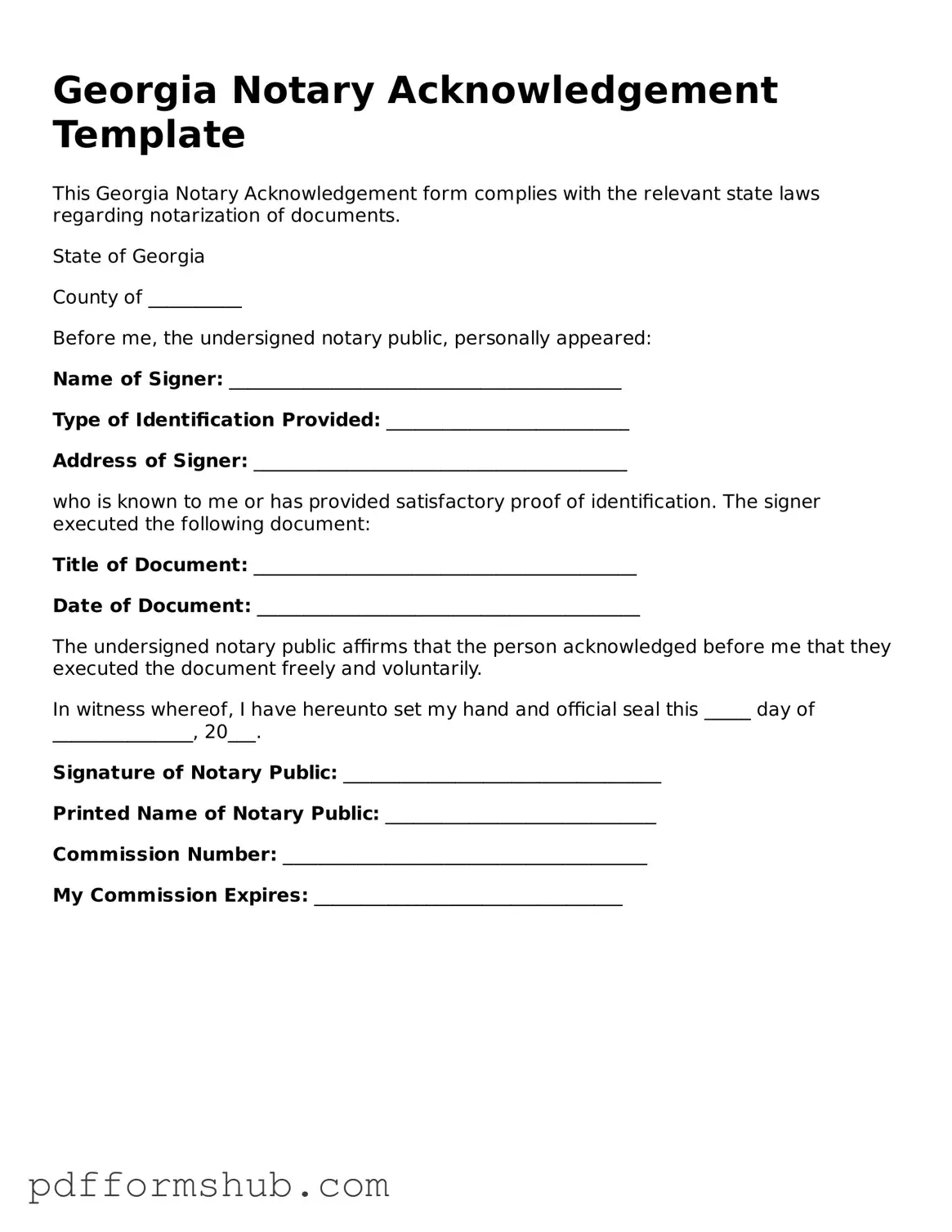Attorney-Verified Notary Acknowledgement Form for Georgia State
The Georgia Notary Acknowledgement form is a legal document that verifies the identity of a signer and confirms that they willingly signed a document in the presence of a notary public. This form plays a crucial role in ensuring the authenticity of signatures and protecting against fraud. Understanding its purpose and requirements is essential for anyone involved in legal transactions in Georgia.
Ready to complete your Georgia Notary Acknowledgement form? Click the button below to get started.
Customize Form

Attorney-Verified Notary Acknowledgement Form for Georgia State
Customize Form

Customize Form
or
Free PDF Form
Short deadline? Complete this form now
Complete Notary Acknowledgement online without printing hassles.